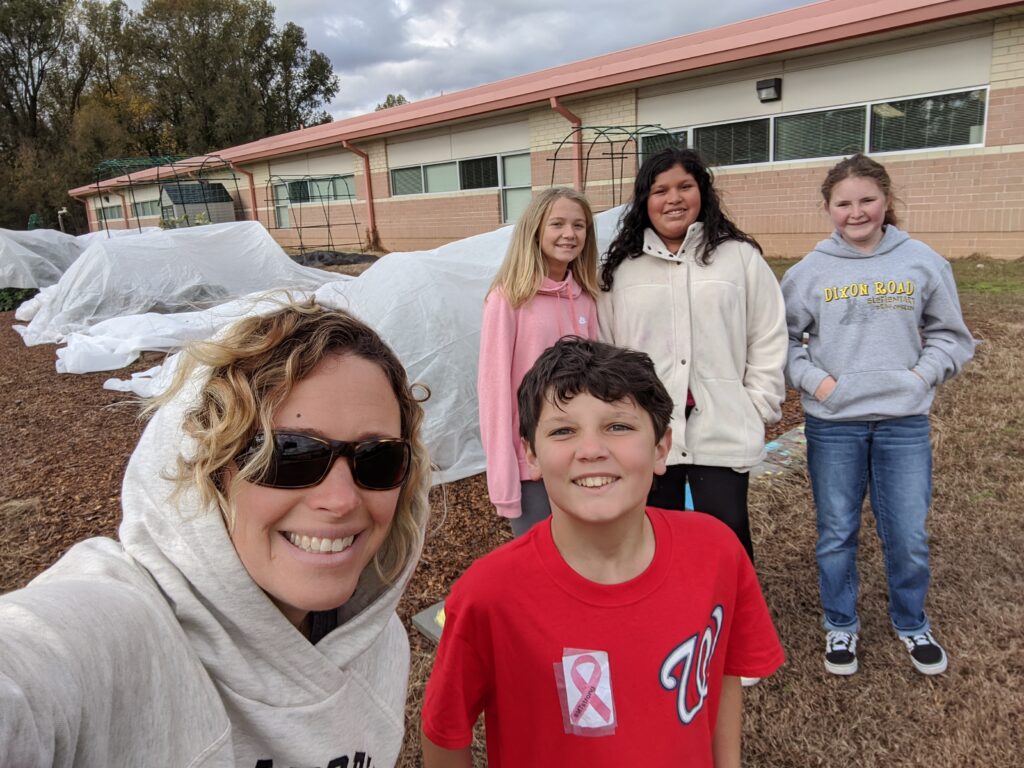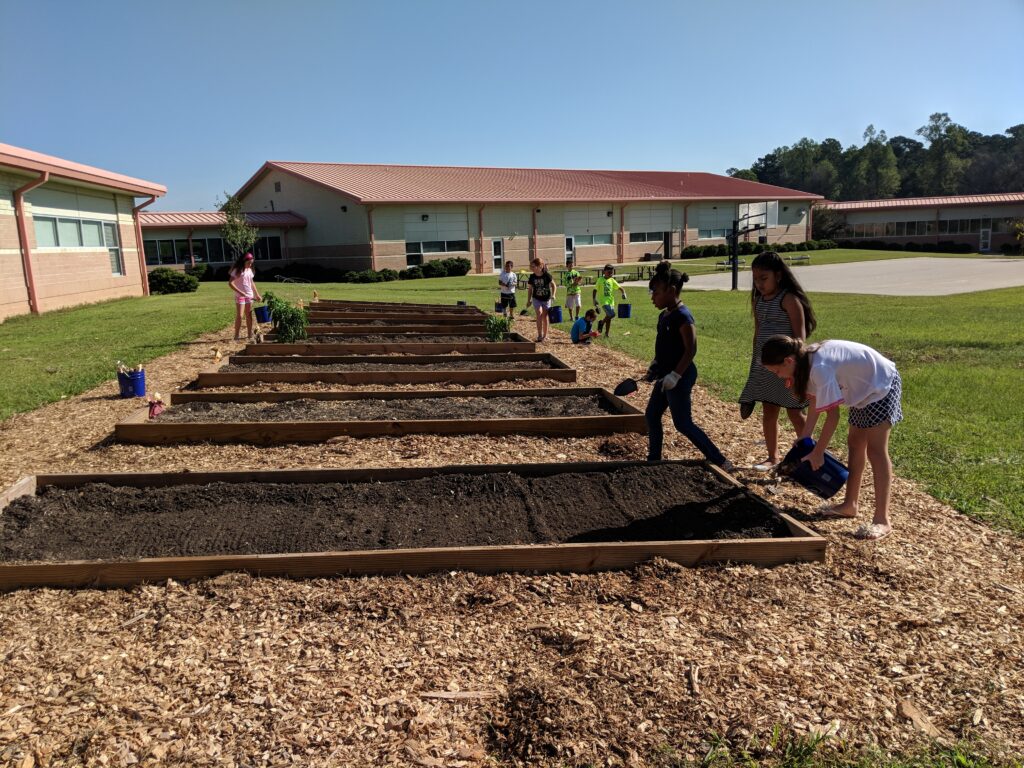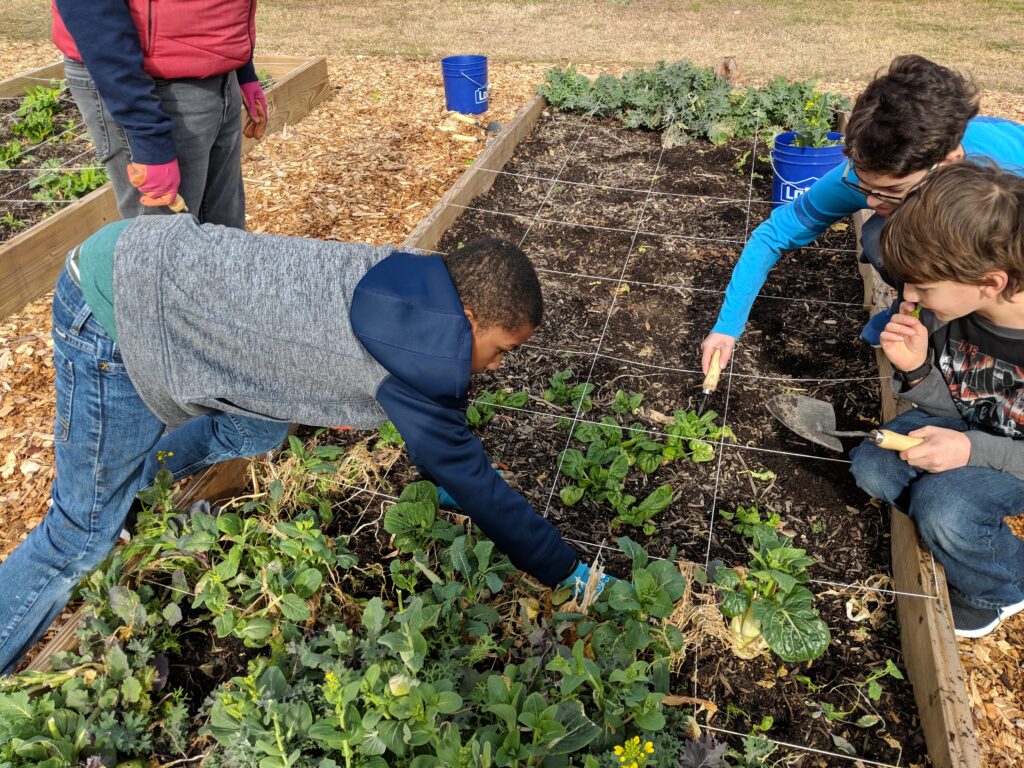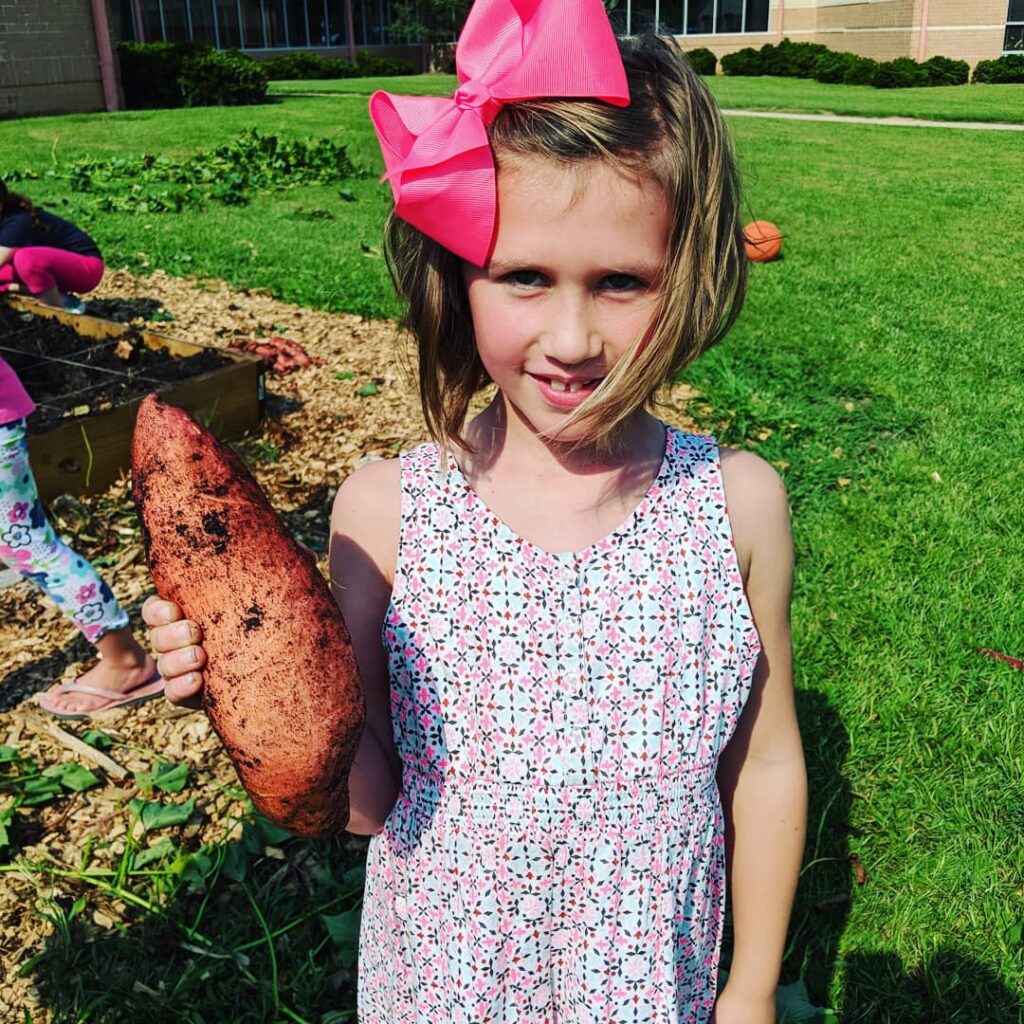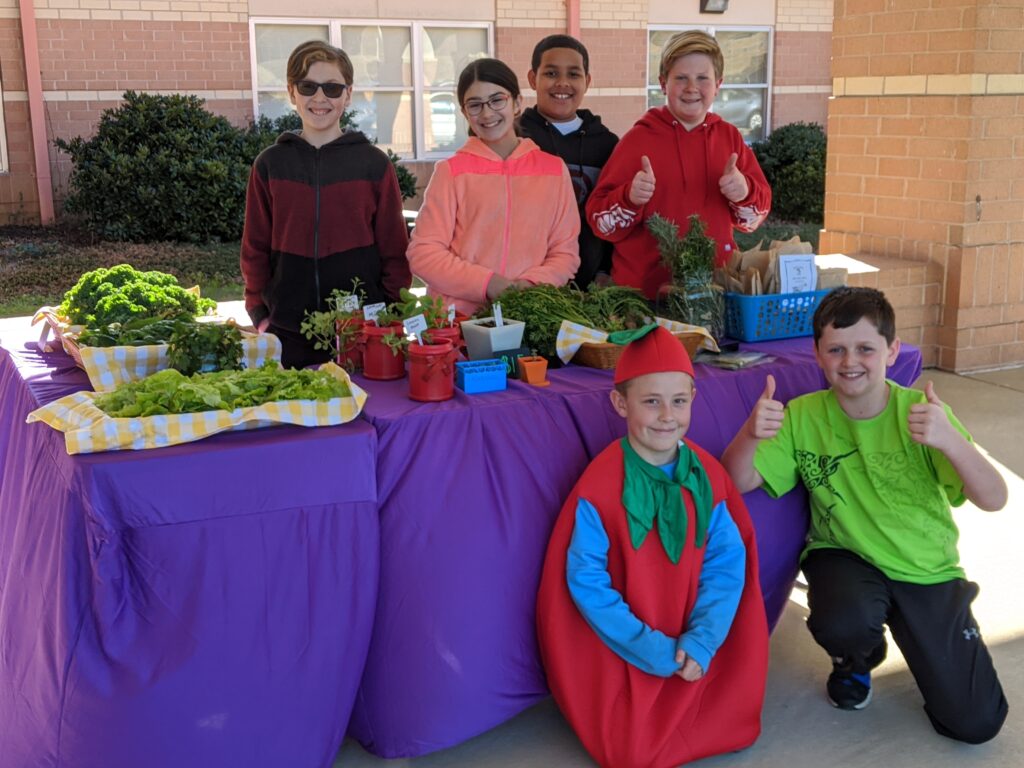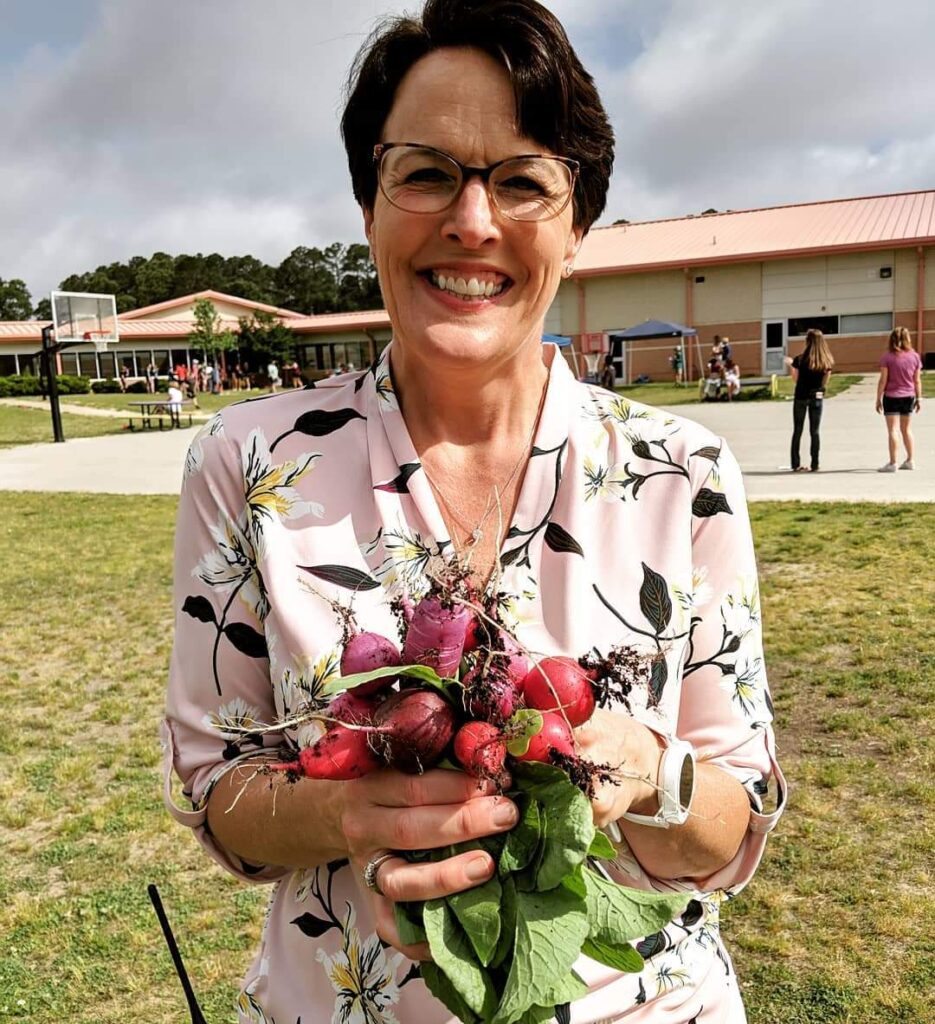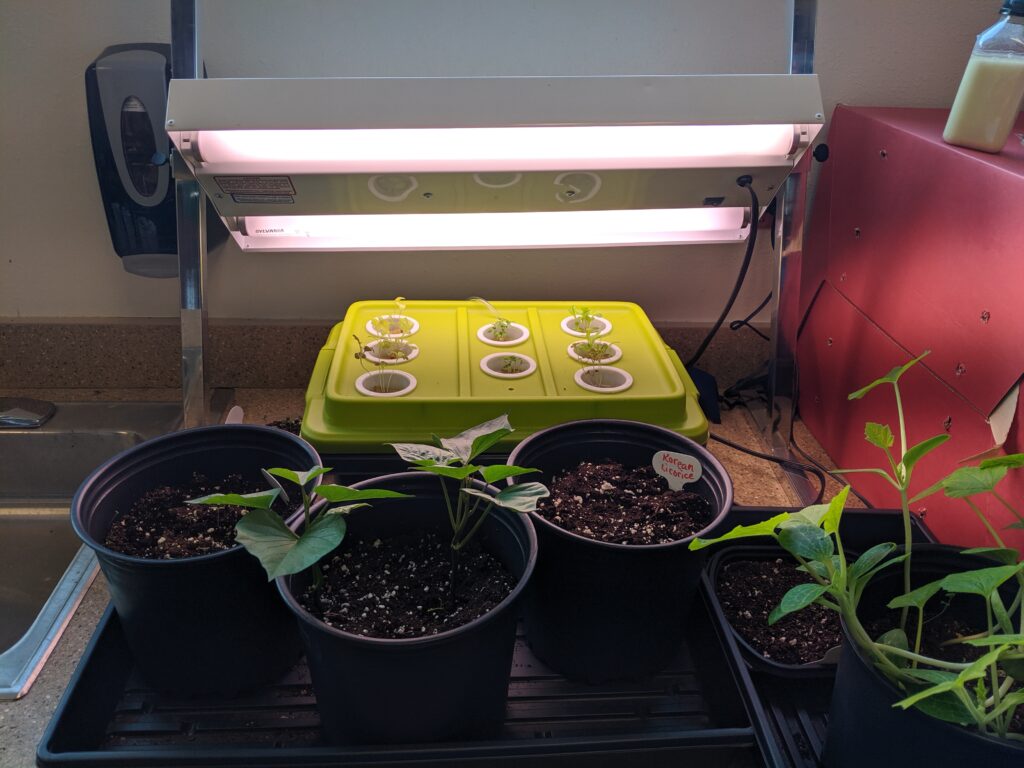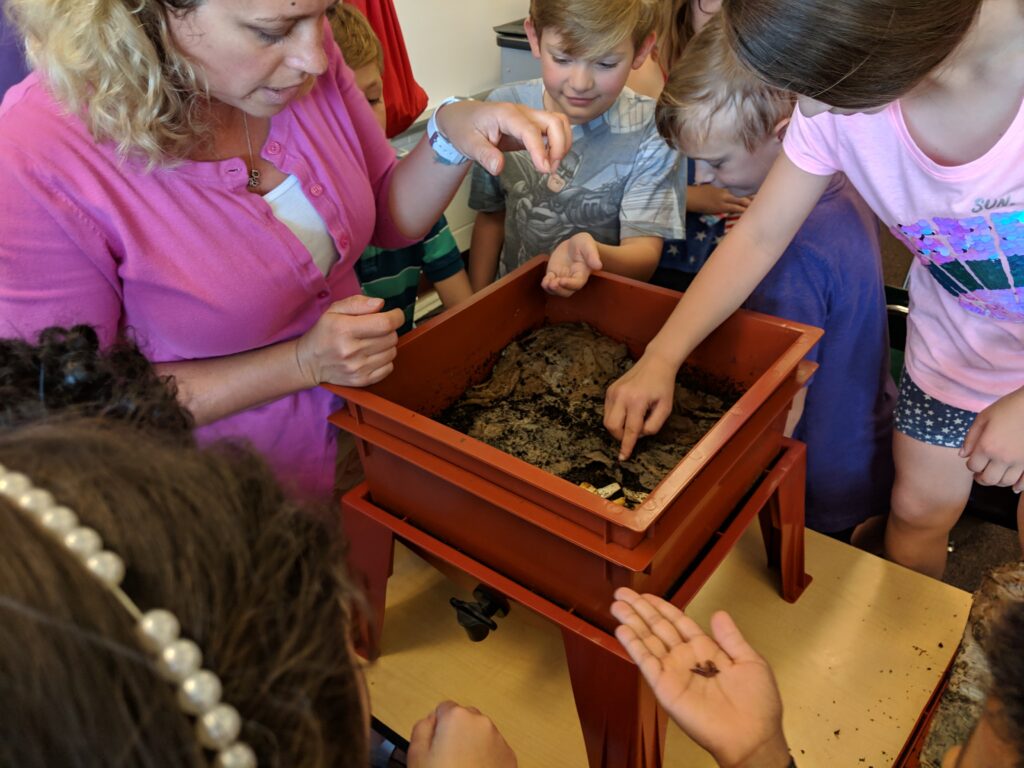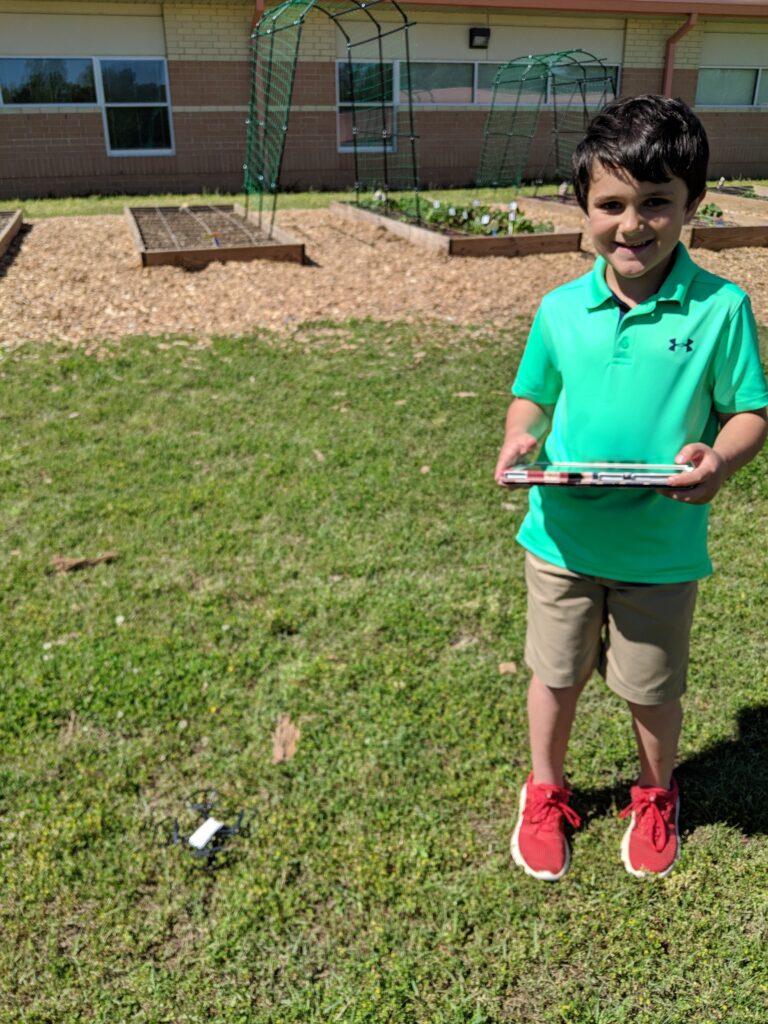Teacher Spotlight: Jackie Tingen
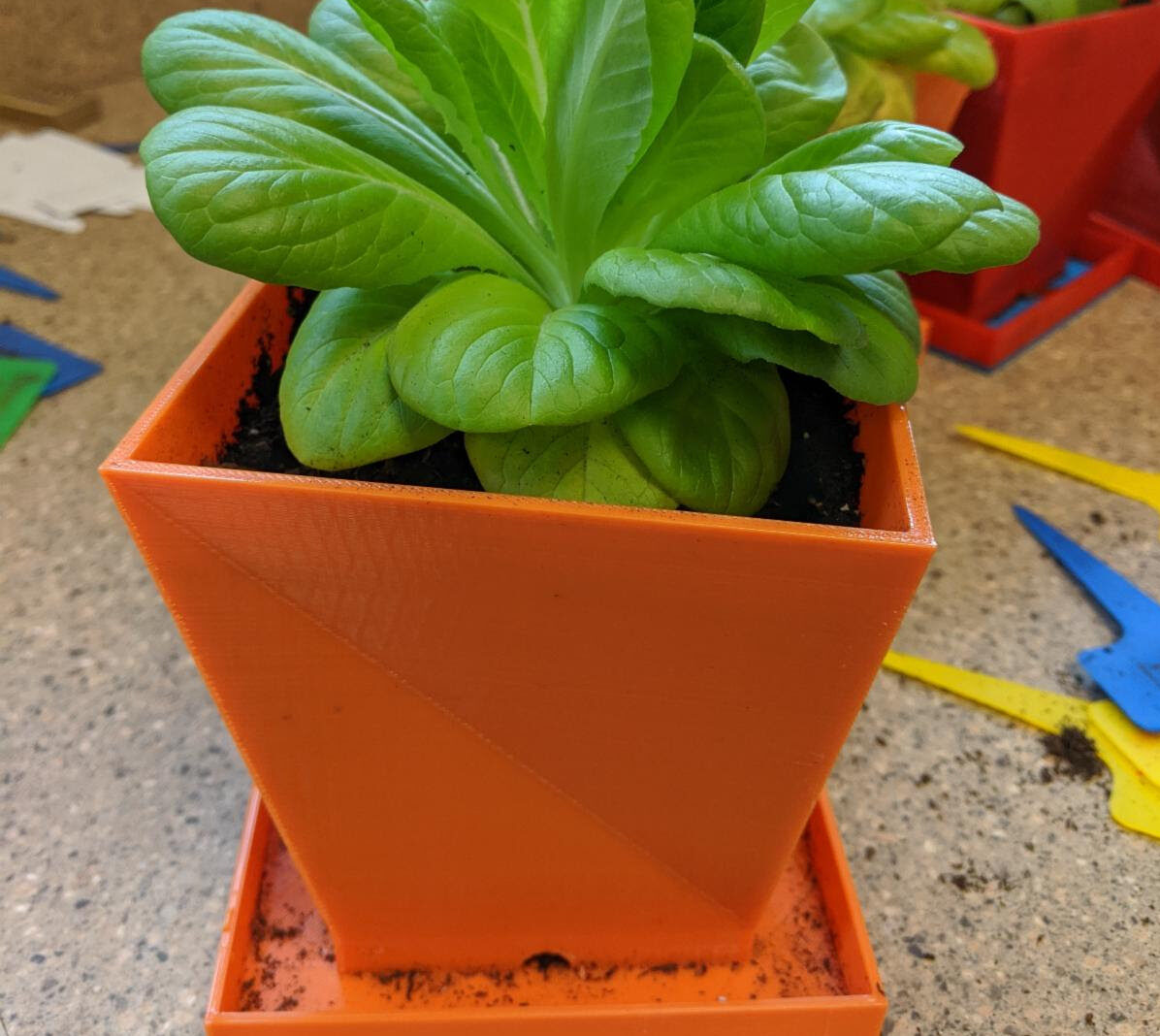
It was only 3 years ago that Jackie Tingen met Amy and Doug and began incorporating AgEd into her STEM enhancement classes at Dixon Road Elementary School in Willow Springs, NC. In that short time, she and her students have done some remarkable things. From winning blue ribbons to raising hundreds of dollars through a curbside farmers market and 3-D printing herb pots, the fun and the learning overlap. She says, “I used to have a black thumb and now my thumb is so green, it wears off on others.”
She has nine 4×12-ft raised beds and a few other smaller beds that are used for “ever growing” crops, such as asparagus and potatoes. In addition there is a dedicated herb garden and a pollinator garden. While the garden is primarily utilized by Jackie, a few classroom teachers would also use the garden to incorporate their curriculum with outdoor education. As part of the enhancement rotation, Jackie sees all the students once a week (in a typical year). She says, “Anytime the weather was good, I had the kiddos outside! We would plant in the fall as well as in the spring, so that we always had something growing.”
Her first crop was sweet potatoes, since the beds were built the last week of school and the vines would provide a low maintenance cover through the summer. When they harvested the sweet potatoes in the fall, they entered a couple in the NC State Fair. And they won a blue ribbon for “Unique Shape” and placed 8th in the weight category. Jackie recalls, “It was so awesome and the kids would take selfies with their potatoes when they went to the fair with their families. It was so exciting that THEY won a ribbon in the State Fair. It was an amazing sense of community because those potatoes belonged to ALL of us, not just the individuals who pulled them up.”
The Carpool Farmer’s Market was a 5th grade project. Every other Thursday, the students set up a stand by the carpool area and would sell their produce as well as handmade soaps to the parents in the line. She says, “It became quite popular and would bring in hundreds of dollars each time; and all of this money went back into the garden program.” The students also learned to 3D print pots for plants like lettuce and herbs, that the customer could harvest from the living potted plant. “These always sold out at our markets,” says Jackie. She laughs, “These things have made me kind of famous in the school garden world.” Wanting to sell some potted plants, her students realized they could 3D print the pots cost effectively. They researched to locate an environmentally friendly filament and purchased that filament with money earned at the garden stand. Students used TynkerCad to create designs, print a draft and evaluate. It took multiple tries to find the designs that were usable, but it’s been a project that has grown; creating unique pots for succulents and larger herbs, like rosemary.
In addition to the AgEd part, the students were also responsible for pricing and re-evaluating the pricing of their produce to ensure they weren’t over charging but still making enough to replenish. They also had to create a marketing/advertising plan, to ensure parents and teachers knew when their market would take place and what they would have to offer. “I was able to just step back and supervise because they did such an amazing job and the ownership piece was incredible,” says Jackie.
The garden space has been minimally used through this mostly-virtual school year. Jackie has grown microgreens in her classroom and has a hydroponics system as well. She’s hopeful the next school year will allow a return to the garden. She says, “I believe kids shouldn’t be sitting inside at a desk all day. Not only is it against their natural instincts to explore and discover, but it really limits their learning styles.” In addition to the outdoor aspect, she has found that teaching kids about where their food comes from and just how much goes into growing one carrot, for example, gives them a new respect for farmers. “We are a very rural county with a lot of farmland and instead of just driving past it, parents tell me that their kids actually start conversations with them about what’s growing and making connections with our gardens,” Jackie adds. Taste tests also help kids get over the stigma of “eww veggies.”
There’s so much more — a kindergartener who won a grant to explore drone pollination alternatives; vermicomposting, a partnership with Campbell University’s public health graduate program, and growing flowers for Mother’s Day bouquets, to name just a few. But all of that boils down to this closing sentiment from Jackie; “It’s really amazing how you can create positive, lifelong healthy habits with something as simple as a school garden.”
- Categories:
